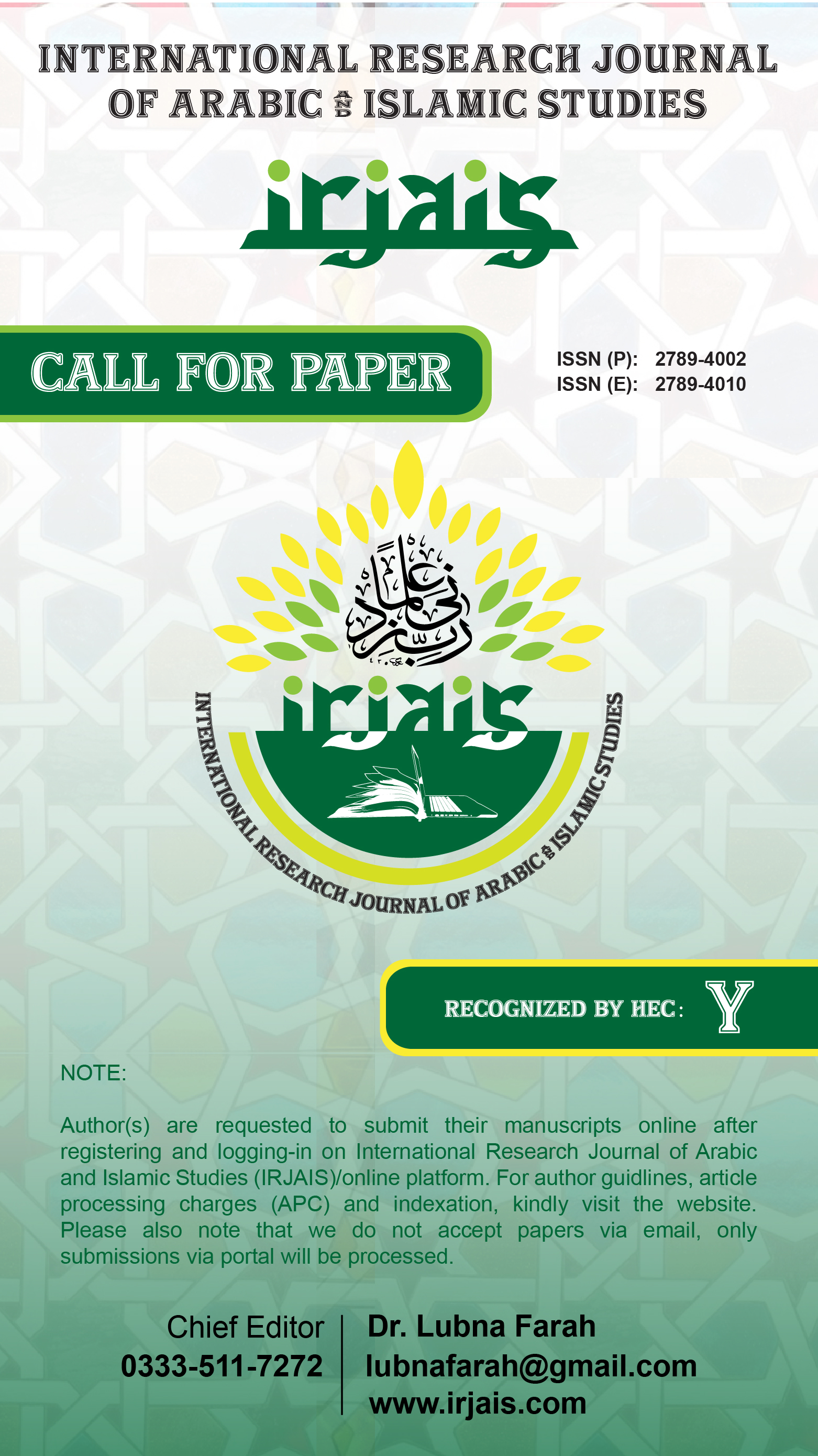تفسیر کشف الرحمٰن از مولانا احمد سعید: سوانح عمری، تفسیری منہج و اسلوب اور ماخذ و مصادر کا جامع جائزہ
Tafsir Kashf al-Rahman by Maulana Ahmad Saeed: A Comprehensive Review of Biography, Exegesis Methodology, Style, and Sources
Keywords:
Bani Israel, Prophet Musa, Moses, Quran, Bible, socio-political conditions, religious challenges, comparative analysisAbstract
Tafsir Kashf al-Rahman is a notable Urdu exegesis by Maulana Ahmad Saeed, recognized for its clarity and approachability. This study provides an in-depth examination of Maulana Ahmad Saeed's life, his methodological approach to Tafsir, and the sources he utilized. Maulana Ahmad Saeed, an eminent scholar from Delhi, was a multifaceted personality—an orator, poet, and a distinguished scholar in Islamic studies. His Tafsir is known for its simplicity and accessibility, aiming to make Quranic exegesis understandable for a broader audience. The study delves into his biographical details, highlighting his contributions and the distinctive features of his Tafsir. The methodology section explores the principles and techniques employed by Saeed in his exegesis, providing insights into his interpretative style. The sources section outlines the foundational texts and references used by Saeed, including primary and secondary sources in Tafsir, Hadith, and classical Arabic literature. The comprehensive review underscores the scholarly value of Tafsir Kashf al-Rahman and its significance in the Urdu-speaking Muslim community.





